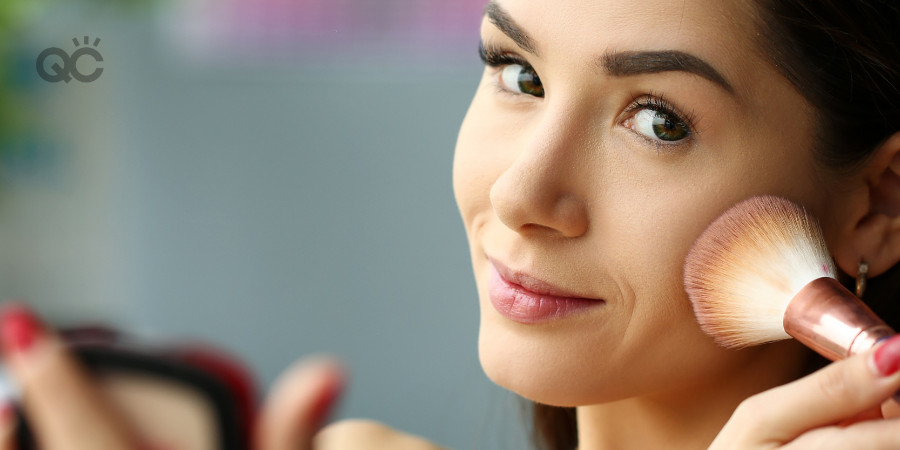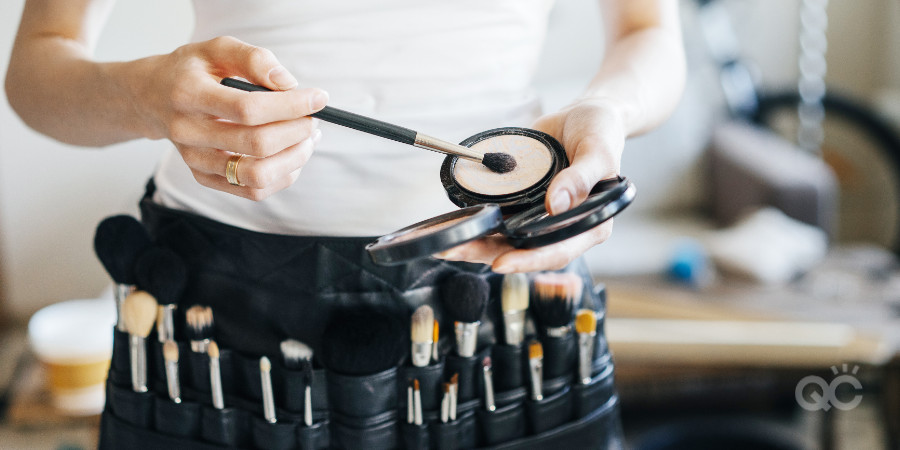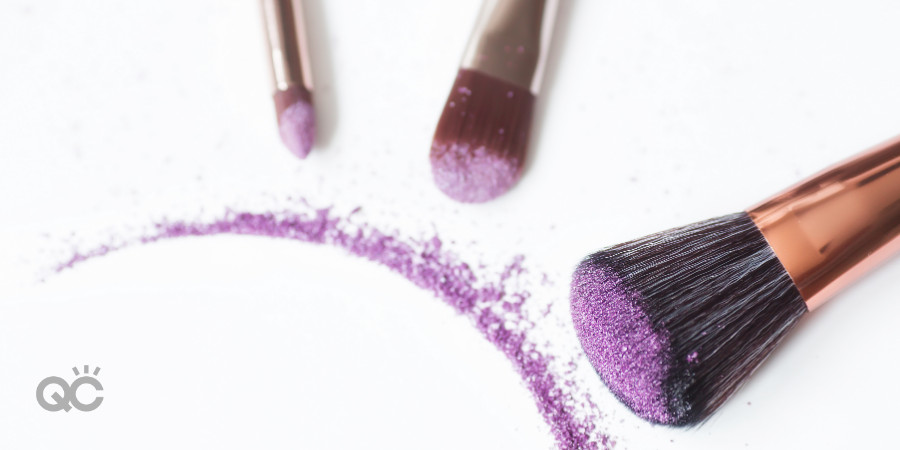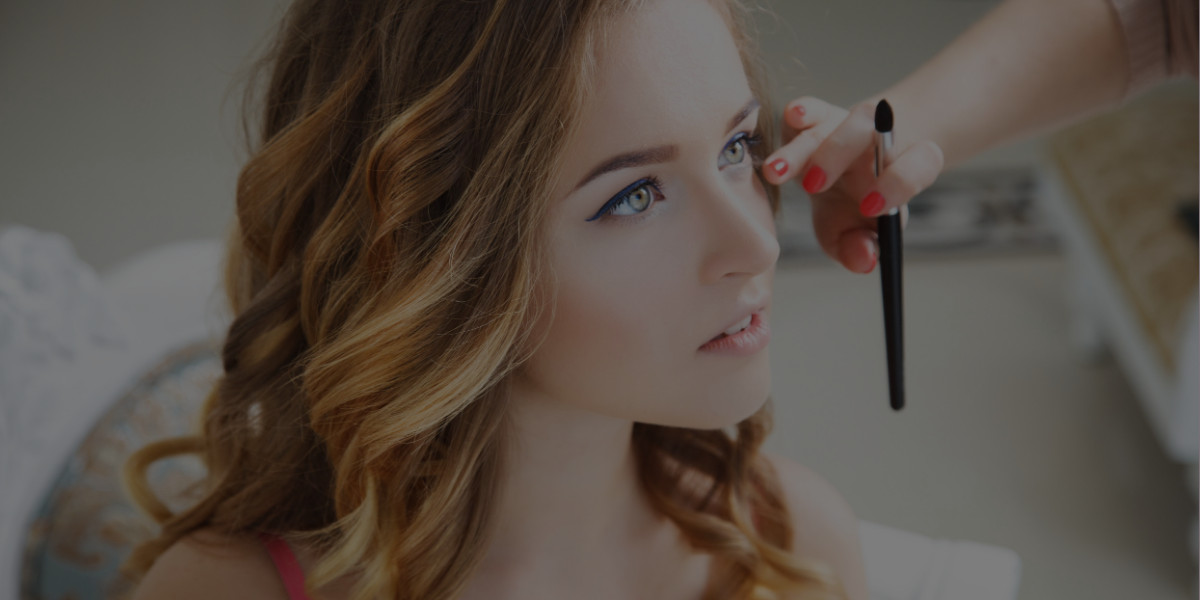Naming your makeup business can be one of the toughest decisions of any aspiring makeup artist. Choose the wrong name and you might struggle to get clients or build your brand. We’ve previously discussed different best practices when choosing a name for your makeup business. If you haven’t read it yet, it’s a good place to start!
If you’re still struggling to come up with a makeup artist business name, there are some definite faux-pas that we can help you avoid.
Read on to find out more about avoiding clichés when naming your makeup business.

Common or Overused Words
Try to steer clear of words that are commonly associated with the makeup industry. Or at the least, before you use one of these words, be sure to do a thorough competitive analysis of other makeup artists in the area. You want to identify (and avoid!) these common words if they are overused in the industry where you live and work. Some potentially problematic words include:
- Beautiful
- Charming
- Dazzling
- Divine
- Elegant
- Glamorous
- Graceful
- Lovely
- Perfect
- Pretty
- Radiant
- Stunning
All these words are very common when describing makeup and thus are likely also overused in makeup artist names in your area. There’s nothing overly wrong with using a common word in your business name, but do think long and hard about whether it’ll cause you headaches!

Misspellings
Accidental misspellings in a business name are inexcusable.
Intentional misspellings in an effort to be “clever” are scarcely better and a definite cliché! Spelling it “guyz” or “stunnin’” will simply come off as cheesy and overdone to most potential customers. So unless “cheesy” is the brand identity you’re going for… or you’re opening a cat café named “purrrcolation” (dibs!), give some serious thought about whether you want those words in your business name.
Trendy Terms
Naming your makeup business based on something ‘trendy’ at the time is probably not the wisest move… because trendy things aren’t trendy for long! Imagine having a business named “Makeup on Fleek”. That may have been trendy and super clever back in 2015, but today that business name would seem wildly out of date and just plain odd to most people.
Also, you risk confusing your customers if they don’t understand the reference of your trending at-the-moment makeup business name. So consider your audience. You might unintentionally end up sounding very young or inexperienced. So tread lightly here!
Exception: Some “trendy” terms are ageless and could make for good business names if it relates directly with your brand. For example, the term “groovy” peaked in trendiness in the ‘60s, but it’s a common enough term even today that people still relate to it. If your makeup business focuses on period makeup artistry, using “groovy” in your business name could be a viable option for you.
Trademarked Names

In an episode of “Dragon’s Den” a few years back, there was a group of women who tried to pitch the Dragons on an all-women-run car repair shop called “Ms. Lube”. What a great idea, right!
The problem right off the bat was with the business name. One of the Dragons at the time was Walter James Treliving, Owner and Chairman of (among other things) “Mr. Lube” shops. As you can imagine, that pitch did not go over well.
You might think that as a small makeup business, you’re able to skirt the lines a little and maybe piggyback on another brand’s trademarked identity to help your own business stand out. MAC is a huge makeup chain! Would they really care if you used those three letters as an acronym for your single-woman makeup artistry business in SmallTown, USA … and maybe also used a similar logo? After all, what harm will it do them?
You bet they will care. MAC worked long and hard to develop their brand and they (rightly) want full control over how it’s used, portrayed, and perceived. This is exactly why trademark laws exist! If MAC ever finds out what you’re doing, you’re in for a costly legal battle that you’re going to lose. Why take the risk?
What’s more, your clients will care! If you have talent and a good business model, you don’t need to pretend to be associated with a big brand if you’re not. In the example above, clients would likely assume you’re actually somehow affiliated with MAC. They might think you’re a MAC Makeup Artist. Once they find out you’re not and instead are just using the brand capital to benefit your own business, your clients will not be happy.
Naming your makeup business can be really hard! By following best practices and not falling into the cliché pitfalls we discussed today, you can start a business on the right foot with every chance of making it a huge success.
